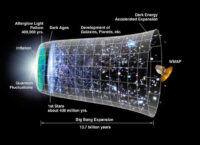Ever wonder why you feel right at home in your favorite comfortable chair? Or why it feels good to get your hands down into the dirt and plant spring flowers? How about that first bite of cinnamon French toast with maple syrup; do you ever wonder why it feels so naturally good and satisfying?
Most of us have such experiences every day, ordinary little moments of connectedness with our world that feel easy and perfect. There are irritations every day as well of course, but even these often have a comfortable, homey feel about them, like finding the cap of the toothpaste tube on the other side of the sink where your spouse left it, instead of on the tube. There is a familiar quality to life, a sense of place that feels appropriate and close. To be sure, there are those souls who never seem comfortable with the world, or whose connection seems tenuous and edgy. But for most of us, relaxing into life is a natural, easy thing we do without thinking.
Nonetheless, we also externalize and objectify life experiences so that they seem separate and unconnected to us. Relating to the world in this way converts direct experience into ordinary conventional truth, which we use to work with the conventional world of this and that. Overall, others share our perception of conventional truth, though opinions vary widely. We cannot literally see the world through the eyes of another, and what I see as blue might be quite different than what you call blue. However, sharing common physiological and biological structures, people reach consensus of what constitutes the nature of conventional truth, and so we construct our ordinary world.
If we examine the nature of conventional truth, however, the separateness and division between ourselves and other things becomes harder to maintain. For example, when does a bite of French toast cease to be separate? Is it part of us when we put it in our mouth, or when it reaches our stomach? Perhaps it must be digested before it becomes part of us. At some point, clearly, it is no longer French toast, and we are no longer separate from French toast. Perhaps, some say, we were never separate from French toast. This is ultimate truth.
When the universe was very young, say a billionth of a second after the big bang, the temperature was a trillion degrees, so hot that even the simplest atom of hydrogen could not exist. From that furnace of creation, all matter and energy expanded, cooled and when temperatures were low enough, elements could form. All the matter and energy of our universe, including all the matter and energy of which we are made, was created at the same time, and has undergone continuous, countless transformations, or so say the leading cosmologists. It is in this moment of creation that science and theology converge; like the various forms of matter, differences of opinion arise later.
The comfort we feel is not because we are in the world, nor of the world; that is the ordinary view of conventional truth. Ultimately, we are the world itself. Our favorite chair feels comfy and familiar because we and the rest of the matter and energy in the universe have been rubbing up against each other, combining and recombining, for at least 20 billion years. Despite the conventional truth of this and that, we can never truly be separated from life’s myriad experiences and manifestations. The ultimate truth is that we and everyone and everything everywhere are ageless, primordial old friends.
The ultimate truth about French toast
More from Public CitizenMore posts in Public Citizen »




